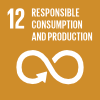Lässig
Environmental Thesis
A more sustainable approach to consumer goods, especially in fashion, is envisaged to reduce emissions (fashion is responsible for c. 4% of global GHG emissions), minimize waste (it accounts for c. 5% of municipal solid waste) and decrease environmental pollution (35% of microplastics are released by washing clothes).
The European Commission has proposed an EU strategy for sustainable and circular textiles in 2022 as part of the Circular Economy Action Plan, given that textile consumption in Europe has the 4th highest impact on the environment after food, housing and transport.
Lässig is a pioneer in sustainable and durable products for babies, kids and the whole family. Its sustainability strategy is based on the following design pillars: resource saving, regrowing fast resources, recycled material, durability, and recyclability.
In particular, Lässig contributes to resource efficiency and pollution control by choosing sustainable and resistant fibers for its products: rPET is employed to manufacture c. 50% of bags sold in 2022 (kids school bags and backpacks, parents diaper bags…) and organic cotton is employed instead of standard cotton for baby and kids clothes, bibs, and home care products.
Using recycled PET instead of Virgin PET enables to reduce Primary Energy demand by 76% and CO2 emissions by 59%. Employing organic cotton instead of standard cotton enables to reduce Blue Water use by 66%, acidification potential (Sulfur Dioxide) 70% and eutrophication potential (Phosphate) by 26%.
Business
Lässig, headquartered in Babenhausen, Germany, was founded by Claudia and Stefan Lässig in 2006 and since then established itself as a leading player in the design and production of baby, kids and family products. The company’s distinctive approach to sustainability, which drives the company decision making on product design and material choice, positions Lässig as a recognized brand for sustainable, innovative and functional products in the upper mid-price segment.
Lässig designs, manufactures, and distributes baby apparel, kids school bags and accessories (e.g. dish sets, lunch box), as well as bags and accessories for parents such as diaper bags. Product design is centred around 5 sustainability pillars (resource saving, regrowing fast resources, recycled material, durability, and recyclability) that characterize most of the company sales and constitute the drivers for growth.
With the help of Ambienta, Lässig will continue to build market share in the DACH region, as well as to further internationalize to other European markets. Additionally, the successful path to broadening the product portfolio across the needs from baby to pre-school needs for kids and families is a focus, as well as the careful expansion of the e-commerce offering.
Lässig has been awarded with multiple awards for innovation and sustainability (e.g. German Brand Award 2021“, “Plus X Award 2022 for Sustainability “ and “Top 100 Innovator 2022” and also holds a broad range of industry leading certificates (a.o. “Global Organic Textile Standard (GOTS)” and “PETA-approved vegan”) for its product portfolio.
Environmental Impact
Ambienta only invests in businesses which have a positive impact on the environment through either, or both, a Resource Efficiency or Pollution Control contribution. Our proprietary methodology, the Environmental Impact Analysis, allow us to measure the contribution of different businesses to sustainability in terms of Resource Efficiency and Pollution Control which we capture through 11 Environmental Metrics.
For each portfolio company we report its impact in relation to our metrics.
Resource Efficiency
Lässig’s contribution to Resource Efficiency is summarized by the following Environmental Metrics:
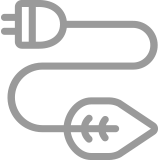
Energy Saved
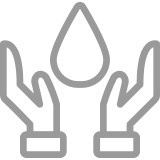
Water Saved
Pollution Control
Lässig’s contribution to Pollution Control is summarized by the following Environmental Metrics:

CO2 Emissions Reduced
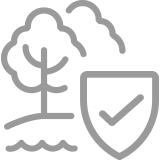
Pollutants Avoided
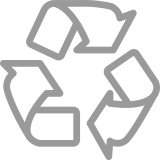
Materials Recycled
Sustainable Development Goals
Our Methodology and Metrics are fully aligned with the UN Sustainable Development Goals adopted in 2015. Through our investment scope definition that focuses on products and services that improve Resource Efficiency and Pollution Control we fully capture 10 of the 17 Goals and their respective sub-goals.
For each portfolio company we report its impact in relation to the SDGs.
